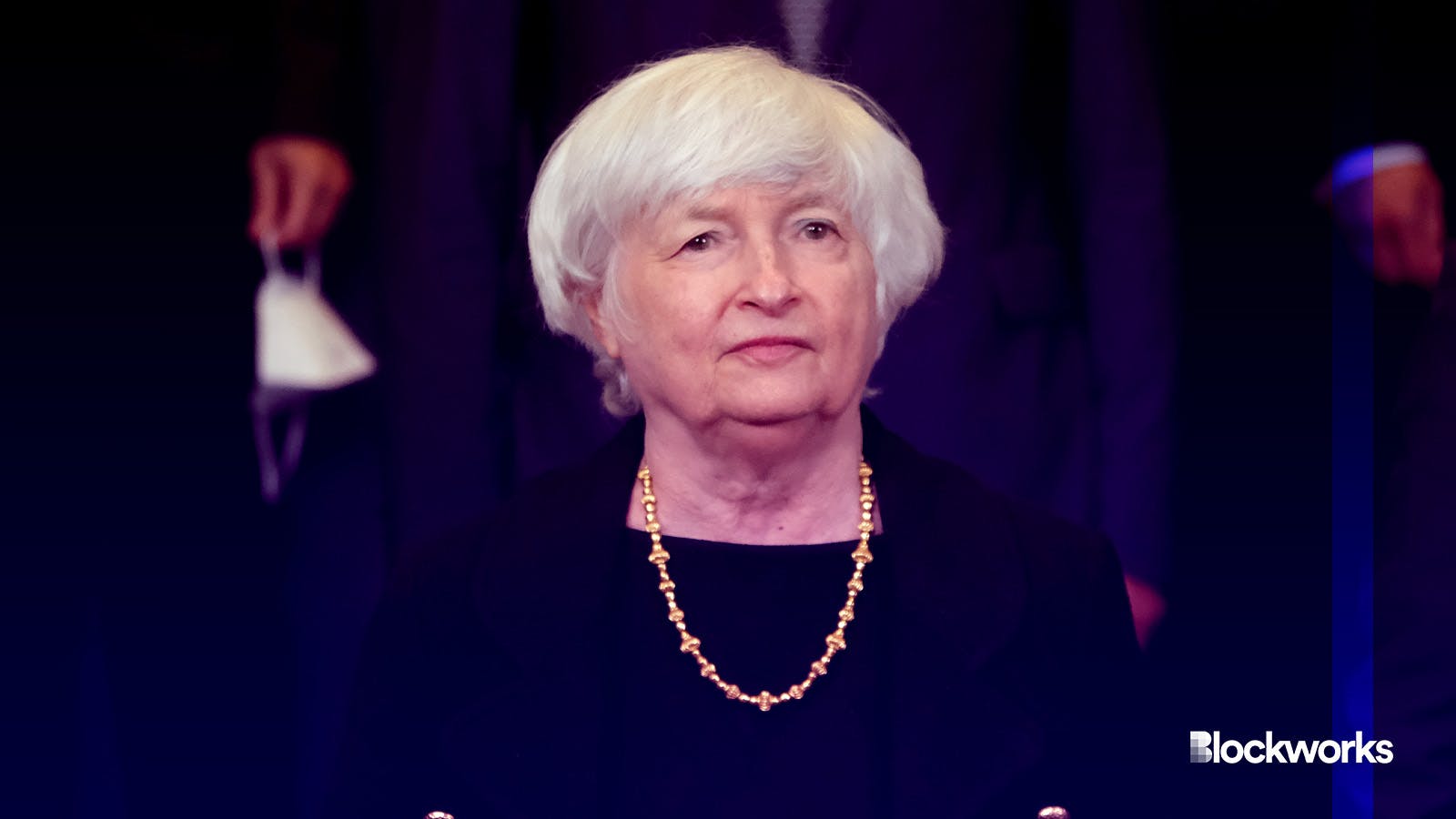Treasury Secretary Yellen asks Congress for oversight of spot crypto markets
Congress needs to act soon, Yellen told lawmakers, pointing to potential runs on digital asset platforms and “vulnerabilities from crypto asset price volatility”

Alexandros Michailidis/Shutterstock modified by Blockworks
Treasury Secretary Janet Yellen made a Tuesday appearance on Capitol Hill to insist that lawmakers act immediately to create federal regulatory standards for the crypto industry.
“There are many areas with respect to digital assets where we do have clear regulatory authority, but we’ve identified some gaps,” Yellen, who also chairs the Financial Stability Oversight Council (FSOC), told the House Financial Services Committee.
“It would be very useful for Congress to fill those gaps,” Yellen added.
Read more: Washington shouldn’t give in to crypto panic
Crypto poses risks, Yellen told lawmakers, pointing to potential runs on digital asset platforms and “vulnerabilities from crypto asset price volatility.” When Committee Chairman Patrick McHenry, R-N.C., mentioned that the House has written two bipartisan bills – one relating to stablecoins and one on crypto market structure – Yellen said these efforts fall flat.
“Stablecoins pose risks to the financial system that both FSOC and the President’s Working Group on Financial Markets have identified as potentially becoming significant over time and we would very much welcome an effort by Congress to create a regulatory framework that would be appropriate to address those risks,” Yellen said.
Some states, including New York and Wyoming, in recent years have taken action to create their own regulatory guidelines for stablecoin issuers. While the Clarity for Payment Stablecoins Act, backed by Committee Republicans and some Democrats, preserves state regulator authority, Yellen maintains that a federal policy is needed.
Read more: 2024 will be the year for stablecoins
“FSOC believes that it is critical for there to be a federal regulatory floor that would apply to all states,” she said. “A federal regulator should have the ability to decide if a stablecoin issuer should be barred…from issuing such an asset.”
Yellen’s comments come as part of an annual hearing for lawmakers to examine FSOC’s annual report, which was released late last year. It identified digital assets as a risk to financial stability and requested that Congress grant authority to regulate spot markets to a federal agency. Yellen is scheduled to appear before the Senate later this week to dissect the same report.
The House Financial Services Committee last month hosted a hearing to discuss the “regulatory whiplash” created by “FSOC’s ever-changing” framework around innovation.
“In this Congress, our committee has scrutinized the repeated and proactive efforts by certain Biden financial regulators to take aggressive agency actions against disfavored industries through guidance, rulemaking, supervision and enforcement,” Financial Services Digital Asset Subcommittee Chairman French Hill, R-Ark., said during the hearing.
While McHenry’s Clarity for Payment Stablecoins Act has passed Committee, it has not been scheduled for a full floor vote. The Financial Innovation and Technology for the 21st Century Act, which focuses on market structure and dividing responsibility between federal agencies, also passed Committee, although with less support, and is not headed to the floor anytime soon.
Get the news in your inbox. Explore Blockworks newsletters:
- The Breakdown: Decoding crypto and the markets. Daily.
- Empire: Crypto news and analysis to start your day.
- Forward Guidance: The intersection of crypto, macro and policy.
- 0xResearch: Alpha directly in your inbox.
- Lightspeed: All things Solana.
- The Drop: Apps, games, memes and more.
- Supply Shock: Bitcoin, bitcoin, bitcoin.






